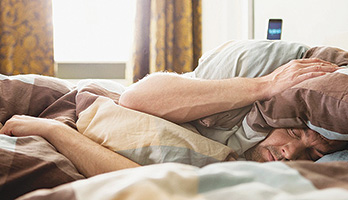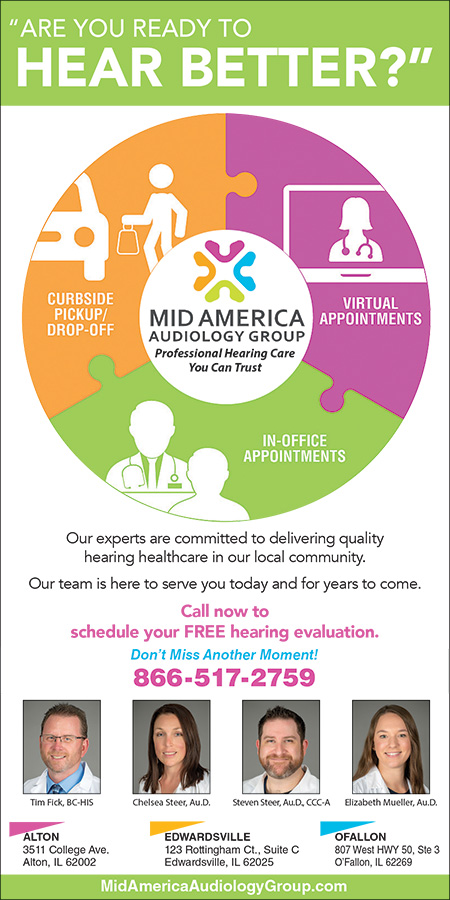 Most people know that skimping on sleep can be bad for you. Regularly getting too little sleep is linked to a number of chronic diseases, not to mention irritability and sluggishness during the day.
Most people know that skimping on sleep can be bad for you. Regularly getting too little sleep is linked to a number of chronic diseases, not to mention irritability and sluggishness during the day.
But did you know that sleeping too much could also be problematic? Oversleeping is associated with many health problems, including:
- Type 2 diabetes.
- Heart disease.
- Obesity.
- Depression.
- Headaches.
- Greater risk of dying from a medical condition.
Does that mean sleeping too much will make you sick? Not necessarily, says Vsevolod Polotsky, M.D., Ph.D., a professor of medicine at Johns Hopkins Medicine. “We don’t exactly know the cause and effect,” he says. “It probably works the other way, that when you are sick, it leads to more sleep time.”
Does sleeping too much actually contribute to illness, or is it a sign of an existing condition? Either way, if you find yourself always nodding off or looking for the next nap, it might be time to see your doctor.
HOW MUCH SLEEP IS TOO MUCH
Sleep needs can vary from person to person, but in general, experts recommend that healthy adults get an average of seven to nine hours per night of shuteye.
If you regularly need more than eight or nine hours of sleep per night to feel rested, it might be a sign of an underlying problem, Polotsky says.
WHAT’S MAKING YOU SO TIRED?
A number of conditions can disrupt sleep or interfere with the quality of your slumber, leading you to feel tired and sluggish even after spending eight hours in bed, says Polotsky. Those conditions include:
- Sleep apnea, a breathing disorder that causes brief pauses in breathing during sleep.
- Restless legs syndrome, a brain disorder that causes an unpleasant and sometimes overwhelming urge to move your legs when you’re at rest.
- Bruxism, in which you grind or clench your teeth during sleep.
- Chronic pain.
- Certain medications.
Then there are conditions that don’t significantly impair the quality of your sleep, but increase the amount of sleep you need. Those include:
- Narcolepsy, a brain disorder that interferes with the body’s sleep-wake cycles.
- Delayed sleep phase syndrome, a disorder in which your circadian rhythm, or biological clock, keeps you up into the wee hours, making it hard to wake in the morning.
- Idiopathic hypersomnia, a disorder that causes excessive sleepiness for unknown reasons.
Fortunately, there are treatments for many of these conditions, which can help improve the quality of your sleep.
HAVING A SLEEP STUDY
Many people find themselves sleeping more as they get older, and assume it’s a normal part of aging, Polotsky adds. But getting older shouldn’t change your sleep needs dramatically.
If you’ve ruled out those conditions and are still hitting the snooze button after nine hours under the covers, it might be a clue that you have an underlying medical condition such as heart disease, diabetes or depression.
If you’re an oversleeper, Polotsky recommends checking in with your doctor. He or she might recommend a sleep study to rule out sleep disorders. “You should seek professional help from a sleep center,” he says.
(Source: Johns Hopkins Medicine)
Are you tired from…too much sleep?
Getting good sleep, in the right amount, can make a big difference in how you feel. Too little or too much sleep can increase your perception of fatigue. And even if you get enough hours of sleep, you might find yourself dragging the next day if that sleep was interrupted by frequent awakenings or was of poor quality.
Although most of us need about eight hours a night to feel refreshed during the day, what counts as sufficient sleep is highly individual.
It makes sense that getting less sleep than you need might leave you feeling tired, but you may be surprised to learn that getting more sleep than you need may not leave you refreshed and energized. In fact, many people find that on days when they hit the snooze button more times than usual, they feel more lethargic and unmotivated.
Research bears out the connection between too much sleep and too little energy. It appears that any significant deviation from normal sleep patterns can upset the body’s rhythms and increase daytime fatigue. The best solution is to figure out how many hours of sleep are right for you and then stick with it — even on weekends, vacations, and holidays.
(Harvard Health)


